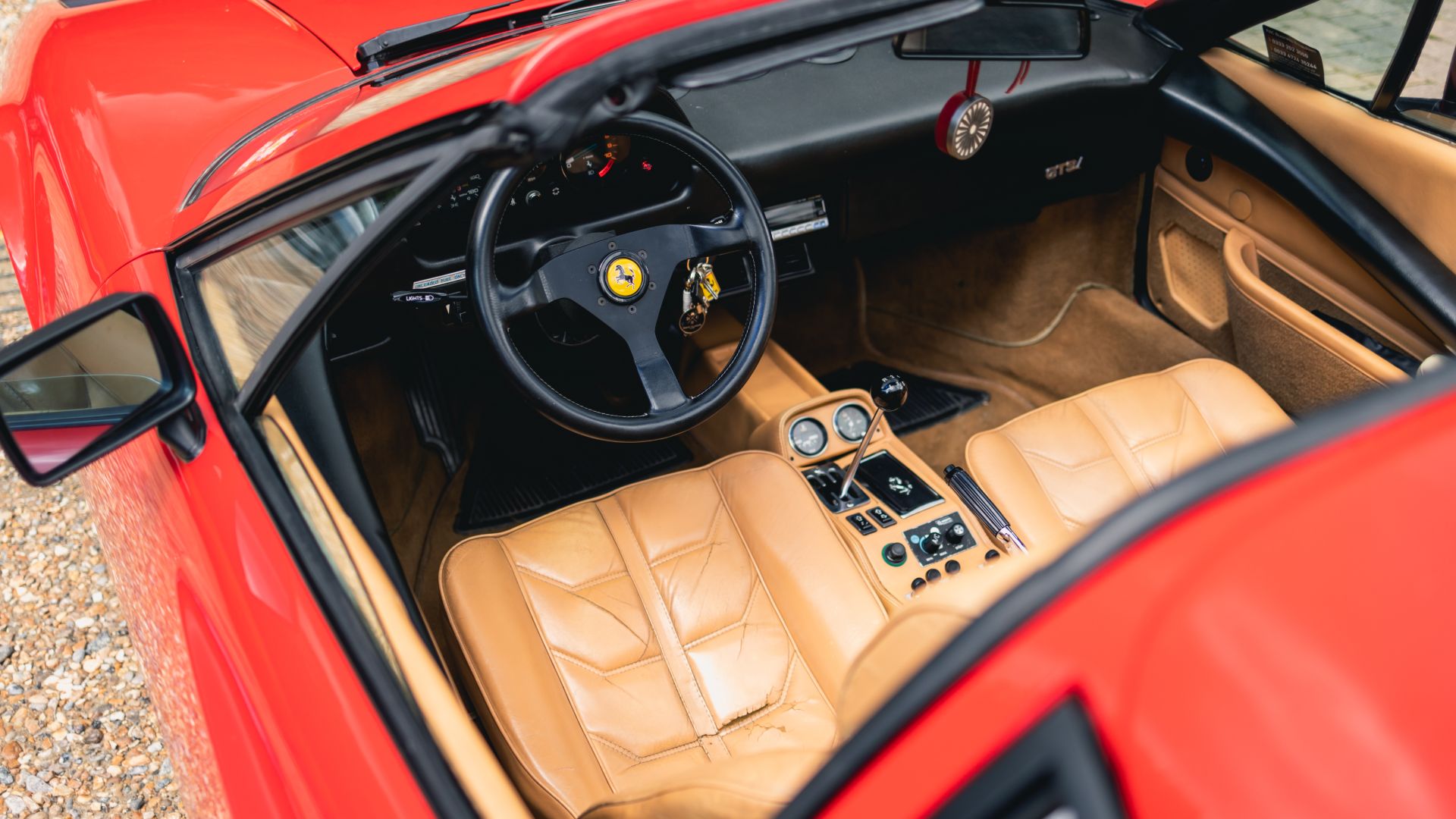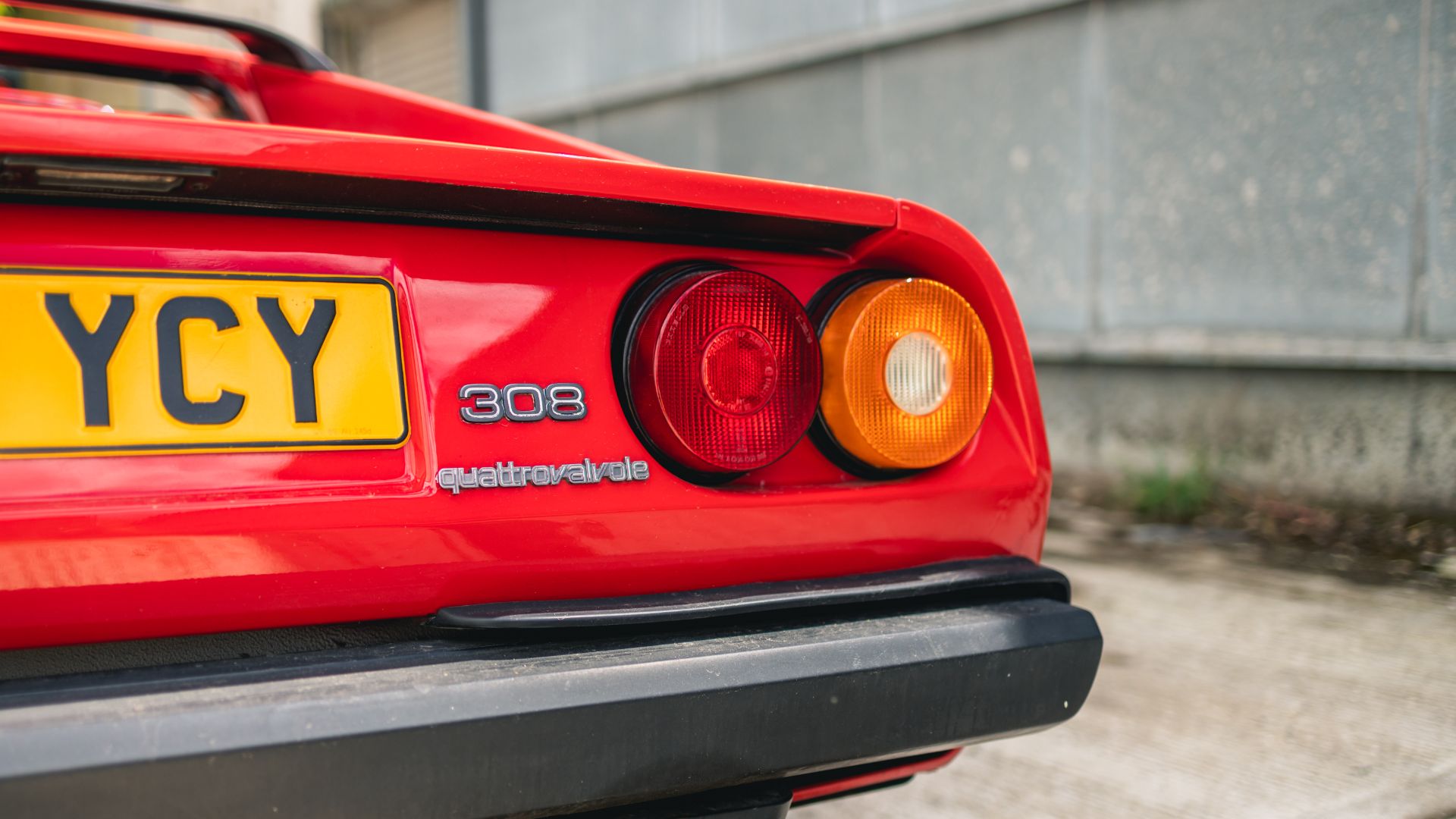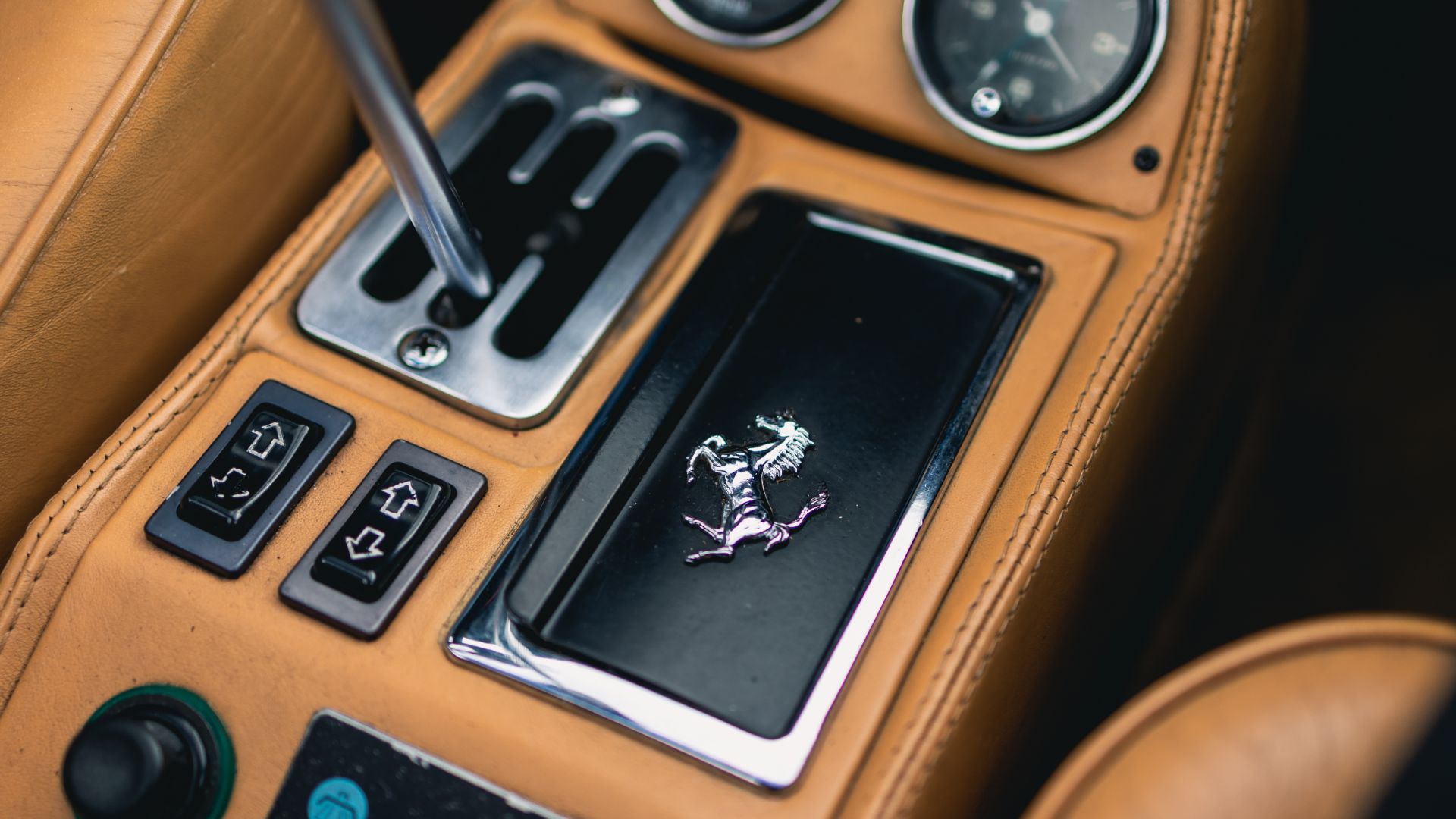When exactly did television shows become so realistic? Today’s gritty crime dramas pull no punches, with fatally flawed anti-heroes and unhappy endings. It wouldn’t have been acceptable in the eighties.
Back then, TV stars had coiffured hair, tailored suits and exotic cars. Often a speedboat or helicopter, too. Magnum P.I. didn’t chase drug dealers and hitmen in a Vauxhall Astra. He drove a red Ferrari 308 GTS.
Car of the star

Thomas Magnum, Private Investigator – played by Tom Selleck – first skidded onto our screens 45 years ago, shortly after I was born. Now I’d be following follow in his tyre tracks, albeit with Hawaii traded for suburban Surrey.
A call to our friends at RNG Classics produced a Ferrari identical to the TV version and the stage was set. Cue the fist-pumping intro music…
No doubt, the 308 has aged better than Tom Selleck’s ’tache. A wedge of shapely Italian style, it hails from a time before supercars were peppered with aggressive air intakes, diffusers and spoilers. The pop-up headlights are retro-cool, while the four round tail lights are a trad-Ferrari touch.
The GTS (that’s ‘S’ for spider) also boasts a lift-out targa top, which stows behind the seats. In sun-kissed Hawaii, you could probably leave it at home.
Beginning of a bloodline

Launched in 1975, the 308 was the first V8-engined ‘junior’ Ferrari – the start of a bloodline that stretched all the way to the F8 Tributo. Early Vetroresina cars were glassfibre-bodied, but Maranello soon switched to cheaper, heavier steel.
The 2.9-litre motor gained fuel injection in 1980, then four valves per cylinder in 1982. I’m driving one of those later Quattrovalvole models, with around 240hp and a top speed nudging 150mph.
Flick a delicate, one-finger catch to open the door and sink into the low-slung caramel leather seat. There’s no manettino, no infotainment, no fripperies. A simple three-spoke Momo wheel frames white-on-black Veglia dials, the rev counter redlined at 7,700rpm. And here s Ferrari’s iconic manual gearbox, its slender wand rising from the open metal gate.
I bite my lip and resist the urge for a side-stepping Magnum P.I. getaway.
Fast action hero

Pottering in town traffic, the 308 initially feels like hard work. The steering is unassisted and first gear is left and down on a dog-leg, with ratios two to five in an H-pattern alongside. You need the forearms of an eighties action hero until the transmission oil warms through.
Still, a Rosso Corsa Ferrari always turns heads – not least my own. I find myself slowing down beside shop windows to admire the view.
The quad-cam V8 sounds a bit workmanlike at low revs, but builds to a hard-edged, snarling crescendo. You hear pumps humming, cogs meshing and fuel flowing, punctuated by the metallic clack-clack of the gear lever. It’s multi-layered and richly mechanical, even more so with the roof removed.
In hot pursuit

In its day, the Ferrari was a credible pursuit – or indeed getaway – vehicle. After being stopped by an Italian policeman in 1976, CAR magazine’s Mel Michols wrote: ‘I saw him disappear into the distance at something well in excess of 160mph. He seemed to have no apparent concern on the face I saw in his mirror. In response, I opened the 308 right up. It answers like the thoroughbred that it is.’
Now, a 0-62mph time of seven seconds is hatchback territory. Magnum would be out-run by a villain in a new Golf GTI.
No matter: this modest performance makes the car easier to exploit and enjoy (‘open up’ a new 830hp Ferrari 296 GTS and even the Carabinieri might struggle to look the other way). Its steering is chattier than Terry Wogan in his prime, the V8 buzz tingling your fingertips. Relatively soft suspension flows over bumpy B-roads, keeping the car on course and building your confidence.
Incredibly, the 308 is also narrower than a Golf GTI, so there’s simply more road to play with.
Blast from the past

Whether it’s supercars or cop shows, they don’t make ’em like they used to. YouTube makes us take nostalgia for granted – all those TV memories are right there, just a click away.
But driving a classic Ferrari remains a rarefied experience, one with more depth than Magnum P.I. could ever muster. If you want to make your own memories, visit the RNG Classics website to learn more.
ALSO READ:
New Ferrari 12Cilindri – and other car names that sound better in Italian



[…] Ferrari 308 GTS review: Retro Road Test […]
[…] It was particularly popular in Italy, where the tax regime penalised larger engines (hence other ‘downsized’ classics, such as the Ferrari 208 GTB). […]
[…] It was significantly well known in Italy, exactly where the tax regime penalised larger sized engines (therefore other ‘downsized’ classics, these kinds of as the Ferrari 208 GTB). […]
[…] It was significantly well-known in Italy, exactly where the tax regime penalised greater engines (hence other ‘downsized’ classics, such as the Ferrari 208 GTB). […]
[…] Maranello, assembled by Ducati, then shipped to Lancia in Turin. It was the same unit found in the Ferrari 308 Quattrovalvole, but revised and detuned for its unlikely appearance in the four-door […]
[…] Maranello, assembled by Ducati, then shipped to Lancia in Turin. It was the same unit found in the Ferrari 308 Quattrovalvole, but revised and detuned for its unlikely appearance in the four-door […]
[…] Maranello, assembled by Ducati, then shipped to Lancia in Turin. It was the same unit found in the Ferrari 308 Quattrovalvole, but revised and detuned for its unlikely appearance in the four-door […]
[…] the most iconic and beautiful French car ever (no arguments, please), the DS seemed ideal for the Retro Road Test: the weekly classic car review we used to publish every […]
[…] the most iconic and beautiful French car ever (no arguments, please), the DS seemed ideal for the Retro Road Test: the weekly classic car review we used to publish every […]
[…] like those on a Rolls-Royce. The rear-hinged back doors open via a fingertip toggle that recalls the classic 308, while all doors have an electric soft-close function. Even though the Purosangue retains a […]